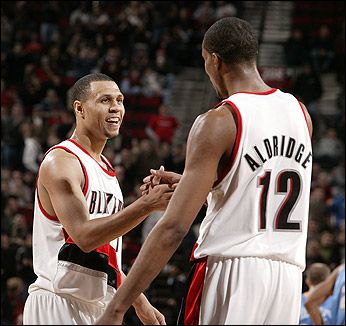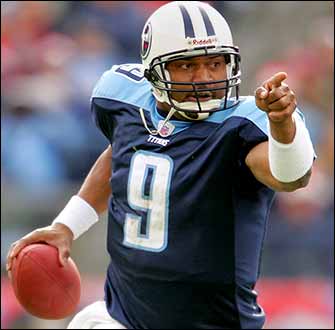
With NBA free agent signings now official, it's becoming clear which teams have gotten better, worse, or are standing still. But as this years free agency has shown us, simply signing free agents doesn't equate to a team getting better.
For example, the Lakers got better be replacing Trevor Ariza with Ron Artest in a simple upgrade. Meanwhile, the Clippers got better by trading away Zach Randolph, an example of addition by subtraction (and on the flip side of that deal, Memphis is now worse off with Randolph taking shots away from Rudy Gay and OJ Mayo). Toronto paid more than $50 million for Hedo Turkoglu, but had to renounce 14 players to do it (bad move). And the Pistons signed Ben Gordon, Charlie Villanueva, and possibly Big Baby Davis, and transformed from a bad team to an average team.
And in the middle of all of this is the Portland Trail Blazers, who are still yet to make a move in free agency this offseason.
The only actions the Blazers have taken part in was a courtship of Turkoglu (who they seemingly had, until he bolted for more money in Toronto). Other than that, things have been very quiet on the Blazers' front.
So what now? Well, you have to look at the facts; you have to weigh the Blazers' performance and future against the current free agent moves being made by other teams.
And in reality, the thing the Blazers should do now...
...is nothing.
The Blazers have one of the youngest, most talented teams in the league; a team that will only get better so long as the core is intact. Just look at the past 3 seasons - the Blazers were the worst team in the league in 2005-06, with only 21 wins. Yet since then, the Blazers have improved their win total to 32, then 41, and finally 54 wins last season with a playoff berth. All of that was done by creating a core of young players and letting them develop their talents together.
Why ruin a good thing?
The uneasiness about the Blazers taking this route comes from the uncertainty it brings. It's very rare that an NBA team slowly builds itself into a contender, developing young talent while biding their time before the success arrives. Aside from the San Antonio Spurs, it's an uncommon practice, as most other teams choose to make a big trade or throw money at a marquee free agent in order to quickly change their fortunes. Every year, several different NBA teams acquire a big-name player in the hopes that he will put them into the finals. But really, it only works for two teams every year, with most of those big free agent moves not working out.
The Blazers are in largely uncharted territory, but based on the path they've been traveling on so far, it seems to be the correct course heading.
What the Blazers shouldn't do is look at their lack of free agent moves and panic. Just because other teams are loading up on free agents doesn't mean that they have made themselves better that what the Blazers currently have. Teams are grabbing up anything they can just so they can say they didn't pass up on a sale. But the Blazers already own enough good pieces, and don't need to spend any more on stuff they don't need.
Yes, I was a proponent of signing Turkoglu, but that was because I was more of a proponent of the Blazers signing a piece that could help them, as Turkoglu could. With Hedo off the market, the Blazers shouldn't suddenly lose track of their goal to sign a missing piece in order to sign someone they don't necessarily need.
If there is a free agent out there that make the Blazers better, then they should obviously sign them. But don't sign somebody simply because everyone else is doing it. If everyone else paid $50 million for Chris "Birdman" Anderson, would you do it?
The Blazers should take what they have, realize the potential this team has, and stand pat. Rather than throw millions of dollars at Andre Miller or Brandon Bass, let's focus that money on contract extensions for Brandon Roy and LaMarcus Aldridge. Let's see just how much better Rudy Fernandez, Nicolas Batum and Jerryd Bayless can be in their sophomore season. Let's see if Martell Webster can come back from his foot injury and start bombing 3's again. And let's see if Greg Oden becomes the center Blazers fans hope he can be.
The Blazers have done nothing but improve for the past three years, so let's see if the trend continues in year 4. If things go stagnant, they can always go after the big names in the 2010 free agent crop. But for right now, let's see how much better this team can be. Don't mess up the chemistry and talent you have right now in a meaningless attempt to "keep up" with teams that aren't necessarily ahead in the race.
It hasn't been done much before, and it's an uncertain future, but sometimes the biggest rewards are won by taking the road less traveled. That mindset is what defines Portland's basketball team:
Trail Blazers.



